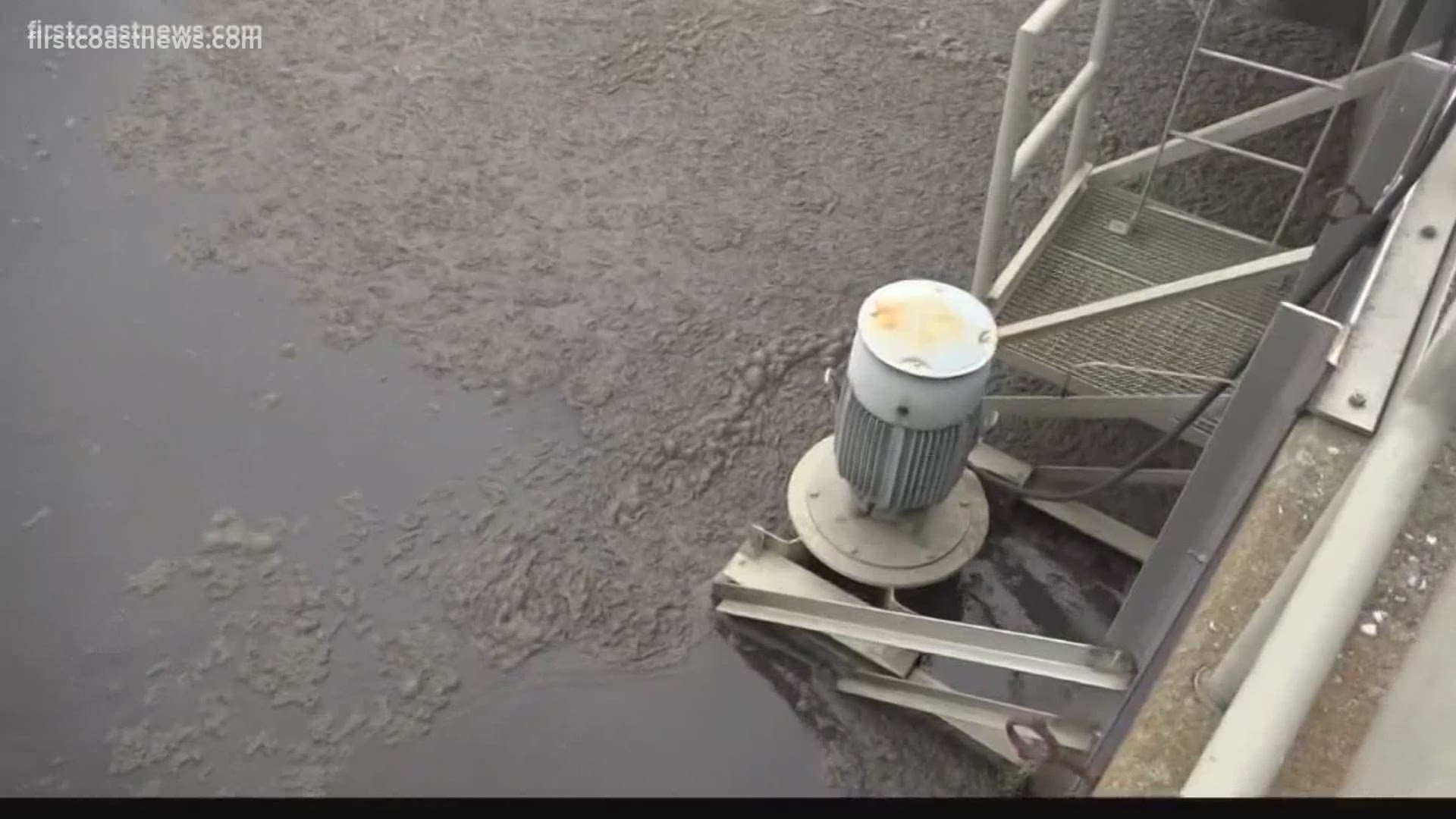JACKSONVILLE, Fla. — Tracking the coronavirus pandemic is going to depend on testing, contact tracing and now, perhaps, raw sewage.
Taking a note from past pandemics, including polio, researchers are chasing the virus in the wastewater stream, where it can reveal patterns, and potentially warn of a second wave of the pandemic.
This weekend, JEA joined two dozen other utilities around the country in collecting wastewater samples to be tested for concentrations of the coronavirus. Liter-sized sewage samples will be collected twice weekly at the Southwest Water Reclamation Facility in Ortega, frozen, then shipped to a lab at the University of Arizona.
The samples won’t show exactly how many people have the illness, but they could reveal broad trends, including, eventually, a decline.
JEA Vice President and Chief Environmental Services Officer Paul Steinbrecher said the sewage stream offers a real-time look at virus levels, including from people who are infected but asymptomatic.
“Diseases like that are shed from our bodies into the solid material that ends up in the toilet,” he said. “This potentially offers one more tool for understanding COVID, such as whether there is reemergence of the virus over time.”
Because of the contagious nature of the coronavirus, the lab the samples are sent to is a BSL-3, or biosafety level 3, where agents that can cause lethal infections are studied.
Steinbrecher says there is a long history of this kind of disease tracking in Third World countries. For JEA, it's a brand new endeavor.
"We just started freezing our first samples this weekend," he said. “We wanted to dip a toe in the water as it were.”
They chose the Southwest water treatment plant because “the area represents a broad section of the community from a socioeconomic standpoint,” Steinbrecher said. It processes about 10 million gallons of wastewater daily and accepts influent from the Westside in an area roughly from I-10 south to Ortega.
Steinbrecher says it will be at least a month before there is enough data to draw any conclusions. But when they get that data, they will share it with the state Department of Health, and the city of Jacksonville.

